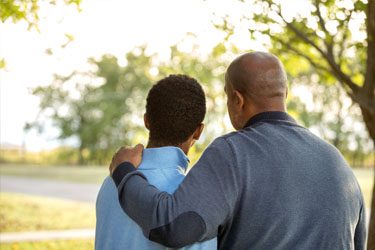Frequently Asked Questions
Intensive Eating Disorders Treatment for Adolescents

Walden will provide the snack.
Yes, they should bring a dinner representative of what they might eat at home. The Intensive Outpatient Program provides utensils, microwaves and refrigerators for storing dinners during the program.
The goal of our program is weight restoration and alleviation of behavior related to eating disorders, such as binging, purging and over exercising.
No, you do not need to have a full outpatient team before entering the program. Your family’s needs for these services can be evaluated and appropriate referrals made during the program.
These issues have been shown to remit once the adolescent recovers. For example, the patient’s self-esteem and body-image typically improve when:
- The goal weight has been reached and maintained.
- If female, menses returns.
- There is no eating-disordered behavior.
- Age-appropriate adolescent activities resume.
- Age-appropriate participation in peer relationships resumes.
No. Both parents are encouraged to come to the parent group and family therapy meetings, but only one parent is required to be present for group sessions, meals and family therapy.
Sibling participation is assessed on a case-by-case basis.
Individual situations vary. The clinical administrator will discuss your case with you and determine what is most appropriate.
Post-program consultation with the program director is always encouraged, especially if you fear your child may be engaging in eating-disordered behavior again. This helps parents assess if their child needs to resume a higher level of care or work differently with the outpatient team. Your child may also be demonstrating transitional behavior, which is expected during the path to recovery.
The program has an eight-week curriculum, but our staff will evaluate the specific needs of individual adolescents and their families.

